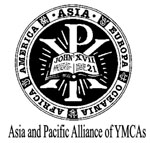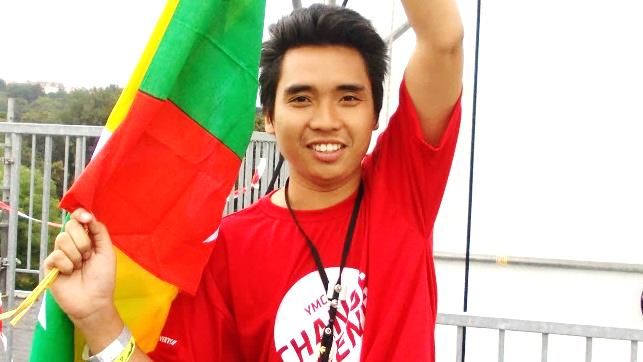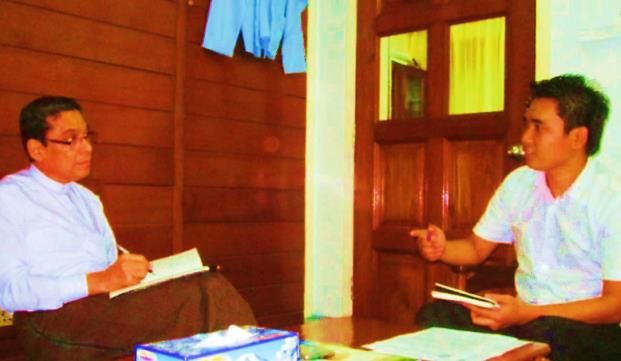APAY participants in the United Nations Climate Change Conference
The Conference of the Parties (COP), is the main decision-making body of the United National Framework Convention on Climate Change (UNFCCC). The main task of the COP is to assess the effects of actions taken by the 198 member countries to reduce their greenhouse gas emissions to limit the global temperature increase to 2 degrees Celsius above current levels. The COP meets every year and the 20th session of COP held in Lima, Peru from 1-12 December 2014.
The COP20 was a huge event. The conference drew over 8,300 participants, including 4,000 government officials, 3,700 representatives of UN bodies and agencies, intergovernmental organizations and civil society organizations, and 660 members of the media.
Discussions mainly focused on the following topic areas:
Adaptation – social and other changes that must be undertaken to successfully adapt to climate change. Adaptation might encompass, but is not limited to, changes in agriculture and urban planning.
Finance – how countries will finance adaptation to and mitigation of climate change, whether from public or private sources or from wealth/technology transfers from developed countries to developing countries and the management mechanisms for those monies.
Mitigation – steps and actions that the countries of the world can take to mitigate the effects of climate change.
Technology – the technologies that are needed lower carbon emissions through increasing energy efficiency or replacement or carbon dioxide emitting technologies and technologies needed to adapt or mitigate climate change. Also encompasses ways that developed countries can support developing countries in adopting new technologies or increasing efficiency.
Loss and damage – introduces the principle that countries vulnerable to the effects of climate change may be financially compensated in future by countries that fail to curb their carbon emissions.
It was indeed very interesting and exciting to see the actions of different NGOs committed to fighting climate change. International lobbying work is very new to YMCA and so it was a steep learning curve for us, trying to catch up with that high level of lobbying work. However, there were also many training sessions provided by Climate Action Network International which were very helpful.
From APAY, Alvin Kan and Chan Beng Seng, were able to participate in various events both inside the COP20 as well as the side events.
The first event was the Youth Summit organized by the Resource Group on Environment of the World Alliance of YMCAs. This event was hosted by the YMCA of Peru from 28-30 November 2014. About 20 participants attended this 3 day event. The main objective of this meeting was to prepare the youth members of RGE for their participation in COP20. APAY provided two inputs – (1) Workshop on Alternative Tourism and (2) Tourism and Climate Change.
APAY also jointly organized with 'Bread for the World' a conference on “Tourism in Times of Climate Change”. This was a public event held at the Cultural Center of San Marcos and hosted by the Ministry of Culture. The two day conference was attended by about 40 people.
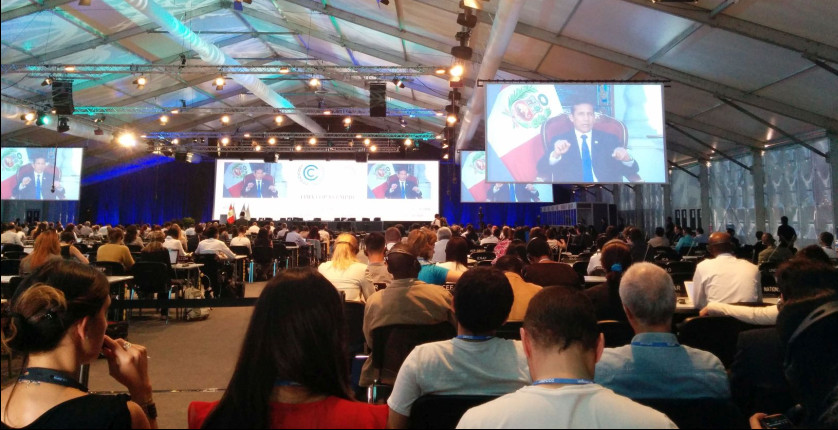 |
| ↑ Opening Ceremony of the COP20 |
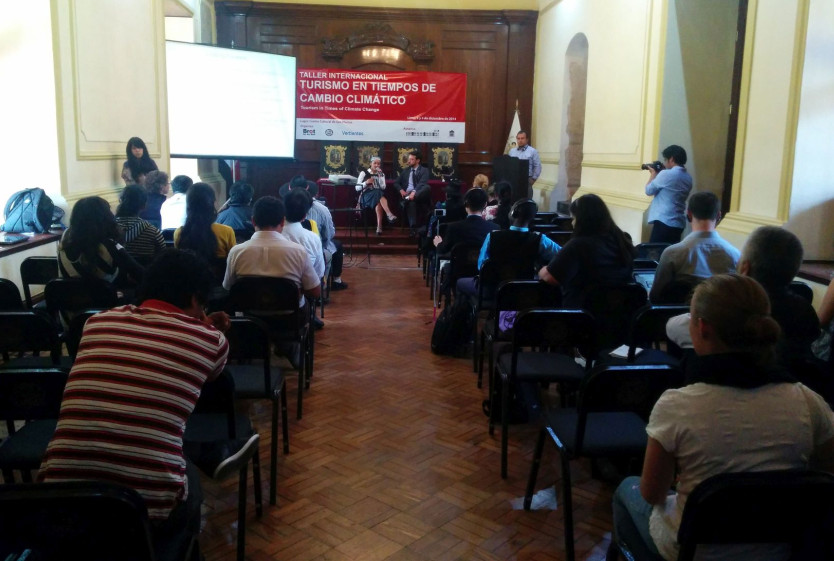 |
| ↑ Conference on Tourism in Times of Climate Change |
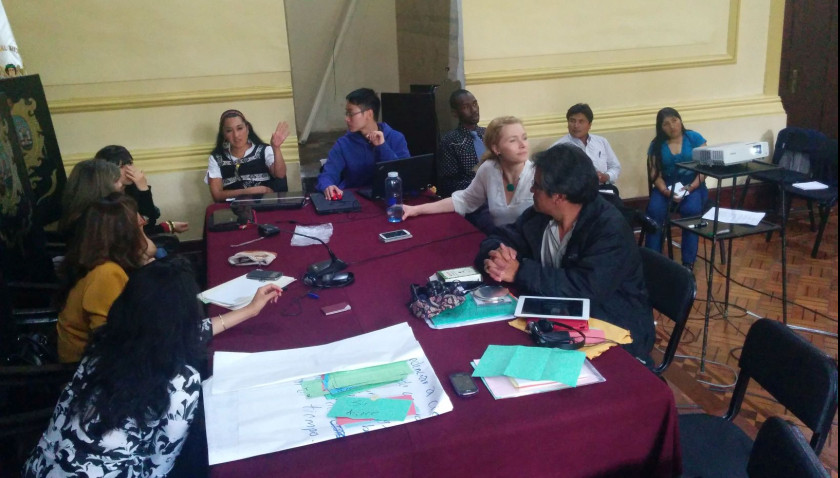 |
| ↑ Drafting group of the Conference on Tourism in Times of Climate Change |
~ Chan Beng Seng, Coordinator for GATN
Message from General Secretary: A Lady in Drug Rehabilitation Center
Introducing Ms. Luludin of Myitkyina, Myanmar
I was visiting Myitkina, Kachin, a northern state of Myanmar, for 5 days. This is about the new YMCA program in the midst of serious drug situation in Kachin State. We came to learn that 80% of the male university students in Myitkina, are regularly taking drugs, mainly heroin. Here I would like to introduce a lady who runs a Drug Rehabilitation Center for some years ago in the locality. The drug rehabilitation course is nearly for 6 months and about 100 young people stay there together for the treatment.
We visited her center to meet with many young people who had gone through drug rehabilitation process. She said that she first received a strong message one day from God the Almighty to do something for those young drug victims. She herself had experienced days of nightmare since her family members used drugs and suffered from violence and fights among family members. Those experiences and her prayer reached to God, she said. After she received the message from Above, she decided to open the rehabilitation center for those who want to overcome the drug based lives and sufferings of the family members.
She had got a land and built a simple hall where 100 drug addicted youths meet, sleep and eat together for entire six months. She believes that the drug users cannot easily overcome the temptation and craves for the experiences by themselves, but need fellowship of acceptance and strong spiritual guidance and support from the Above. They use various spiritual training methods for overcoming the temptations. Later the YMCA there started follow up sessions for those who had completed the 6 month rehabilitation program. Most of the YMCA clients do not have families who believe and accept their willingness of overcoming the drug usage. Most of them were already disowned from their own families. They had to depend on the facility as their home. Ms. Luludin agreed to them for staying in her premise while volunteering their time to a new batch of clients after the work.
I realized that all of those ex-clients call her “Mother”. This mother understands how their families feel and therefore she offers and trusts those ex-drug users’ efforts and she supports their efforts to overcome their drug temptation by creating the new life with new vocational training of their interest. She believes God supporting her work and whenever new problems she faces, she prays and she is sure that God offers whatever she needs. She is confident and she is shining. We need such persons to solve such difficult issues.
~ Kohei Yamada, General Secretary
Updates on Disaster Recovery and Rehabilitation
Creating Livelihood opportunities for young people and families affected by Typhoon Haiyan in the Philippines
As YMCA, we are called to be partners in the continuing effort to strive with the people affected by typhoon in Tapacon, Bingawan, Iloilo to help turn around their difficult lives after the disaster struck. We are glad to share with you how the beneficiaries and local partners have known the movement as we continue to work with them. After almost three months of rehabilitation and reconstruction projects of the educational facilities commenced, the cooperative production and livelihood center, the implementing staff team is now preparing for the turn-over of these facilities to the respective administrators so they become stewards and care taker of said facilities. The occasion will also include the blessing and inauguration of the YMCA Youth Development Training and Livelihood Center which hope to cater to many young people unable to pursue formal college education from the community. This initiative is a long term response to preparing the young people affected by the disaster to a better future. Through the vocational courses that will be offered in close collaboration with local learning institution and Technological Educational System and Development Authority, it is hoped that the first courses may soon be offered in this learning facilities. In cooperation and support of all the contributing YMCA movements and service organizations, the Y Care International and through the local government of the Municipality of Bingawan, the turn-over program and inauguration will be held on February 5, to coincide with the partners meeting.
Updates on the first cycle of the livelihood endeavor of 60 recipient families will also be shared as well as their small victories and challenges during this first project attempt. In one of the meetings with the beneficiaries, Marilyn shared that YMCA is not only trying to help the people of Tapacon in many different projects, but also for them to learn and develop as individuals and as potential leaders through the trainings and seminars they provide. She shared that she always look forward to the YMCA meetings and activities to help and assist in their work.
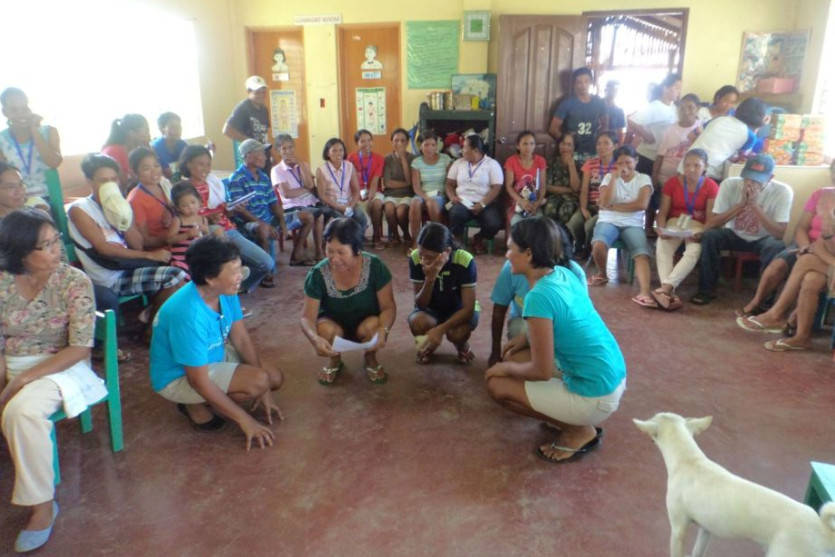 |
| ↑ A group of beneficiaries acting-out their 'animal code' before their reflections' sharing |
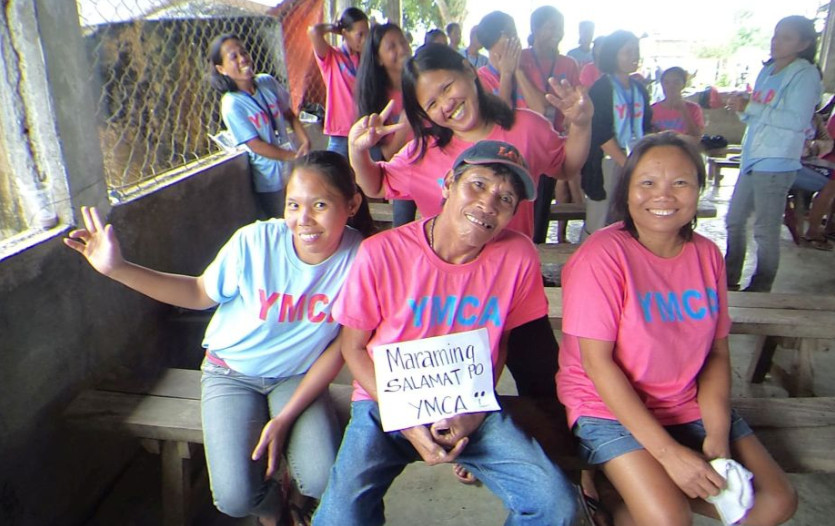 |
| ↑ Another group of beneficiaries expressing 'Thank you' to YMCA during their meeting this January |
~ Eloisa Borreo, Project Manager, APAY/Philippines, Disaster Rehabilitation Program
Human Rights Statement: Practicing Faith and Protecting Rights
On December 10, 1948, the U.N. General Assembly gathered in Paris to adopt the Universal Declaration of Human Rights (UDHR), a new statement of principles authored by the international community about how people of all nations should relate to one another. Today, as the world observes this achievement 66 years ago, it is troubling that humanity cannot also celebrate the realization of the rights enshrined in it, for the UDHR is a universal declaration that does not yet apply to all people. Rights have been defined in the UDHR, but they have not been implemented everywhere by the governments of all nations.
Among the core rights contained in the UDHR is freedom of religion. Article 18 of the UDHR explains that this right includes the “teaching, practice, worship and observance” of one’s faith as well as the ability to change one’s religion. Like other rights in the UDHR, this right is not well respected in many countries in Asia.
Interfaith Cooperation Forum (ICF), a regional network of young people working for interfaith justpeace in Asia, is concerned that, not only is one’s freedom to practice their faith not respected, but that religion is often viewed in these contemporary times as a source of tension and violent conflict among people. This phenomenon is particularly pronounced in the region in Burma, India, Indonesia, Pakistan and Sri Lanka. In all of these nations, it is a small segment of people from the majority faith community in the country attacking and discriminating against those from minority faith communities. ICF contends, however, that religion is not the source of this communal violence, but rather, it is the manipulation of religion by some political and religious leaders to further their own agendas. Moreover, they do not practice their faith. Instead, they abuse and ignore their faith’s teachings, for all of Asia’s major faiths, as well as the spirituality of its indigenous people, uphold the value of life and human dignity and promote equality, justice and peace—the fundamental values on which the UDHR is grounded.
Thus, on this International Human Rights Day, practicing one’s faith is not only an exercise of one’s religious freedom, but it is also a means to promote and protect all of the rights proclaimed in the UDHR for all people.
~ Reflection by Bruce Van Voorhis, ICF Coordinator
ICF holds Working Committee Meeting in Cambodia
Interfaith Cooperation Forum (ICF) held a working committee meeting for two days in the Cambodian city of Siem Reap beginning on January 7, 2015. Members of the ICF interfaith regional network from Bangladesh, Nepal, the Philippines and Sri Lanka attended the meeting in addition to Henriette Hutabarat, the General Secretary of CCA, and Duncan Chowdhury, Executive Secretary of APAY, and ICF staff members.
At its annual meeting, the working committee members shared about the activities of the ICF national forums in their countries, such as plans in Bangladesh for children to visit places of worship of Christians, Hindus and Muslims to learn about each faith and their teachings on justpeace. Through this program, the national forum in Bangladesh hopes to build relationships between people of different faiths.
The working committee also discussed plans for ICF’s programs in the next three years. Among these plans are to hold a subregional School of Peace (SOP) in Southeast Asia this year and another SOP in perhaps the Pacific in 2017.
Advocacy will also be more a part of the work of ICF in the next three years, and thus, the working committee discussed the creation of petitions as one platform for generating awareness of local and national issues and working toward creating change.
Among the ICF programs for 2015, in addition to holding a SOP in Southeast Asia, are workshops on human rights, community organizing, peace education for children as well as tools for transformation, which are the use of various forms of art and media for education and advocacy.
~ Bruce Van Voorhis, ICF Coordinator
Former President of YMCA Timor Leste Called Home
We received the information from Timor Leste belated, that Agustinho Vasconselos who was the Former President of YMCA Timor Leste had passed away on November 28, 2014. He died of cardiac arrest. He was one of the founding leaders of the YMCA Timor Leste and had immensely contributed to the development of the YMCA movement in Timor Leste. We express our heartfelt condolences for the bereaved family and we also pray to God the Almighty that he may find eternal rest in the Jesus Christ.
Voices from Youth: Leaders of today and tomorrow -
Start Now!
I am very glad to be a YMCA Change Agent. I participated in a few international youth programs like in Sri Lanka, Indonesia, And Czech Republic, where I gained leadership knowledge and skills to be applied to youth programs in my local YMCA. Apart from taking up leadership role in my church, I organised 6 Global Citizenship Education trainings for young people in my country. Since Myanmar is in a changing state of development of our civil society, these trainings are crucial for young people to be good citizens.
When I asked my NGS, Mr Maung Muang Win, about Youth Empowerment, he shared with me that youth will be the future of YMCA as well as our country. Youth bears great potential and voice. Myanmar YMCA provides opportunities for young people to have mindset change, understand and participate in our community and even in international communities. YMCA needs to create even more space for young people. Now, Change Agents, with our great desire, confidence, commitment, knowledge and skills, have to continue with the YMCA to organise programs and networks such as work camps, leadership trainings and community services. All these programs are vulnerable to young people.
“World YMCA Change Agent” and “Asia Pacific YMCA Youth Representative” programs are both very good for us, young people to have personal development. YMCA is a good place for youth to explore and to succeed. YMCA is working for youth and waiting for more youth to participate. YMCA is a ladder for youth if you want to excel. Don’t be late to get involved in the YMCA. Try your best for the future! Start Now!
~ Saw Tun Lu, Field Coordinator of Myanmar YMCA
|
